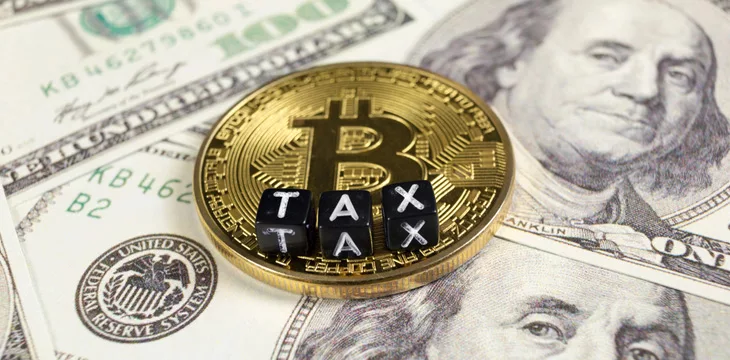|
Getting your Trinity Audio player ready...
|
The United States Internal Revenue Service (IRS) has released its draft tax form for reporting digital asset income, which “brokers” will be required to fill out for the tax agency and customers as of 2026.
The new tax Form 1099-DA, “Digital Asset Proceeds from Broker Transactions,” is expected to come into use in 2025 and will be issued to traders/investors annually by digital asset brokers beginning in January 2026.
Anyone considered a digital asset broker must prepare Form 1099-DA for every customer who sells or exchanges digital assets and then submit the form to customers and the IRS. As it stands, those categorized as brokers by the IRS are centralized exchanges, decentralized exchanges, wallets that allow users to buy, sell, and trade digital assets, and
BTC ATMs and other physical kiosks.
The form also asks for token codes, wallet addresses, and blockchain transaction locations.
Digital asset traders have previously had issues using the tax forms provided by digital asset exchanges, and the 1099-DA aims to solve that problem by making digital asset tax information more accessible and ensuring all traders report their gains and losses.
The draft form is based on the notice of proposed rulemaking posted in the Federal Register on August 29, 2023. Proposed by the U.S. Treasury Department, the new rules
state that digital assets, non-fungible tokens (NFTs) and stablecoins are all reportable, and digital asset brokers, including exchanges and payment processors, have to tell the IRS about users’ trades of digital assets.
“With third-party information reporting that specifically identifies digital asset transactions, the IRS could more easily identify taxpayers with digital asset transactions that are otherwise difficult to discover,” said the rules.
In addition, brokers will be forced to exchange information on digital asset transfers to determine the initial value or purchase price accurately, according to Gordon Law, a Chicago law firm that focuses on digital asset, tax, and business law.
“This type of information sharing already occurs between stock brokers—for example, if you move stocks from Robinhood to eTrade,” said Gordon Law in its preliminary analysis of draft Form 1099-DA. The firm went on to suggest that such data sharing may prove a problem for digital asset brokers:
“Cryptocurrency transfers occur much more frequently (often several times within a single transaction), and digital asset brokers are not currently set up to share cost basis information.”
It’s no surprise then that some in the digital asset community were less than enthusiastic about the proposed reporting requirements when announced last year. The Blockchain Association, a non-profit that purports to represent the industry in policy, lawmaking, consumer protection, and security concerns, said the rules contain “fundamental misunderstandings about the nature of digital assets and decentralized technology.”
Meanwhile, Paul Grewal, the chief legal officer of perennial regulation and law objector Coinbase, said the proposed rules would set a “dangerous precedent for surveillance of the everyday financial activities of consumers by requiring nearly every digital asset transaction — even the purchase of a cup of coffee — to be reported.”
However, the new rules received support from the Capitol. In a contrasting letter dated October 10, seven U.S. senators urged the Treasury Department and IRS to move faster on implementing the rules, warning that waiting until 2026 would potentially lead to $50 billion in lost annual tax revenue.
The IRS is continuing to accept comments on draft Form 1099-DA, but it’s likely the eventual form will not deviate too much from the current version based on last August’s rules.
IRS determined to tax digital assets
The IRS has long targeted digital assets as a top source of unreported income, and data seems to back this up, with several recent surveys having indicated that a significant number of digital asset investors in the U.S. are not compliant in their tax reporting.
In order to address this, in January, the IRS issued a reminder to taxpayers that they must “report all digital asset-related income” on their next return. The tax service’s definition of income includes all income-generating digital asset transactions: disposal of digital assets (including NFTs), receiving assets as payment for property or services provided, receiving assets via mining, staking, or similar activities, and receiving an airdrop of new tokens following a blockchain hard fork.
Earlier this month, IRS criminal investigation chief Guy Ficco told CNBC that he still expected a significant portion of “crypto” investors to attempt to reduce their tax liability by understating their digital asset income or even failing to report any such income at all.
Ficco reiterated that digital asset sales need to be reported on tax returns and emphasized that there would be serious repercussions for those who didn’t.
Punishments vary depending on the severity and magnitude of the tax fraud. Civil tax fraud, such as fraudulent failure to file a tax return or filing a fraudulent tax return, is limited to monetary penalties of up to 75% of the underpayment amount. While criminal tax fraud, such as tax evasion or willful failure to pay tax, can result in a maximum sentence of five years imprisonment and a fine of up to $100,000 for individuals or $500,000 for corporations.
The IRS is now seeing “more of the pure crypto tax crimes,” said Ficco, including failing to report income from asset sales or “shielding the true basis in crypto.” The IRS criminal investigation chief added that he expects to see more charges filed “in this year and going forward.”
Watch: It’s time for regulation to enable blockchain growth

 02-19-2026
02-19-2026 




